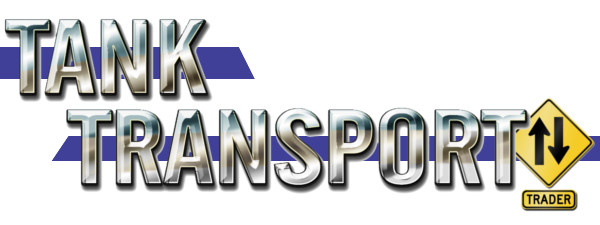Owner-Operators Rising Costs: A Growing Challenge in the Trucking Industry

Owner-operators are booking shorter routes and lighter loads to combat rising costs.
The trucking industry is facing unprecedented economic pressures, with record inflation, still-high diesel prices, and volatile freight markets significantly affecting owner-operators. According to a Truckstop survey of 500 owner-operators, 77 percent of respondents have booked shorter routes due to rising costs, while 72 percent have looked for lighter loads and 65 percent have booked fewer loads.
Supply Chain Issues and Parts Availability Impact Profitability
One owner-operator, John McCormick, driving for Oakley Trucking, said lingering supply chain issues have impacted both parts availability and his profitability. McCormick recently purchased an actuator that usually costs around $500, but the only one he could find was on a website selling it for $2,000.
“There seems to be a lot of that, a lot of price gouging.”
Sixty-five percent of owner-operators are spending more time and money maintaining their trucks to guard against expensive repairs, according to Truckstop’s survey.
Quality of Truck Parts: A Growing Concern
Driver Andy Goettsch, who owns the Galva, Iowa-based carrier Goettsch Dispatch, which employs more than 30 drivers, said even on his new trucks, he perceives the quality of parts to be worse than in previous years, citing wheel seals as an example.
Enjoying our insights?
Subscribe to our newsletter to keep up with the latest industry trends and developments.
Stay Informed
Supply chain issues are impacting parts availability and driving up prices.
“I just don’t think the quality of the seals are there,” he said. “They tried to cheapen it up too much.”
Driver Shortage and the Need for Better Training
With the industry many thousands of drivers short of what carriers would like, current drivers are aware that their workforce doesn’t have the numbers it needs. Aaron Puterbaugh of Albertville, Minnesota’s Long Haul Trucking, said he sees fewer and fewer drivers entering the profession from younger generations due to the demands of the job.
“A lot of people don’t necessarily want to be gone for weeks on end,” he said.
Stricter Requirements for Entering the Trucking Industry
However, some veteran drivers argue that there need to be stricter requirements for entering the industry, insisting that, despite the driver shortage, quality is important.
“The biggest problem with the trucking industry today is training,” McCormick said. He reasoned that a person wouldn’t operate a train with only a few weeks of training, so why are drivers allowed to operate a tractor-trailer without going through more extensive education?

Better training and apprenticeship programs could improve driver quality and safety.
Apprenticeships and Experience for New Drivers
According to Puterbaugh:
“It should almost be a requirement to have some kind of apprenticeship, and the people doing the apprenticeship should have a couple years of experience themselves.”
He added that employee-owned Long Haul Trucking requires two years of experience for its drivers.
Rethinking Trucking Pay Structures
One way to attract new talent while possibly alleviating the pain that existing drivers feel under the current market would be to look at trucking’s pay structures, Puterbaugh said.
“I would definitely say get away from the pay per mile,” he said. “I get paid a percentage of what the truck makes, so I more or less look at loads that pay better. I’m not chasing miles, I’m chasing money,” adding, “The technology is there to do an hourly pay, or some sort of salary plus hourly.”
High Diesel Costs and Route Planning Strategies

High diesel costs are putting immense pressure on owner-operators, forcing them to adapt and find new strategies to stay profitable.
High diesel costs are another significant pressure on drivers, impacting their decision-making and forcing them to adapt. Truckstop’s survey reveals that 77 percent of owner-operators are booking shorter routes due to rising costs, such as diesel. Furthermore, 72 percent have begun searching for lighter loads, and 66 percent are spending more time rerouting to find more fuel-efficient lanes.
Government Intervention to Alleviate Diesel Prices
McCormick expressed frustration with diesel prices, suggesting the government could do more to alleviate prices, such as by lowering fuel taxes.
“Diesel prices have been a thorn in my side. The government should do more to help.”
Preparing for the Future: Adapting to Owner-Operators Rising Costs

Investing in preventative maintenance can help reduce expensive repairs and downtime.
As owner-operators continue to face rising costs and challenges in the trucking industry, it’s essential to stay informed and adapt to new strategies to protect their bottom line. Here are some potential actions to consider:
- Stay up-to-date with market trends and adjust operations accordingly.
- Invest in preventative maintenance to minimize costly repairs and downtime.
- Prioritize fuel-efficient routes and consider investing in fuel-efficient technologies.
- Advocate for government support to address diesel prices and supply chain issues.
- Reevaluate pay structures to attract new talent and retain experienced drivers.
- Encourage better training and apprenticeship programs to improve driver quality and safety.
- Network with other owner-operators and industry professionals to share best practices and learn from one another’s experiences.
In conclusion, owner-operators need to remain vigilant in addressing the rising costs and challenges they face in the trucking industry. By staying informed, adapting strategies, and advocating for industry improvements, owner-operators can work together to navigate the uncertain future and ensure the continued success of their businesses.
Dive Deeper into Related Topics:
- For more information on the challenges faced by owner-operators, check out our article on the trucking industry’s labor shortage.
- Stay updated on news and trends in the supply chain affecting the trucking industry.
- Discover how operational costs are impacting the trucking sector and the strategies being employed to address them.
- For the latest news and insights on the trucking industry, visit our dedicated section.
- Learn more about the challenges faced by owner-operators in today’s competitive market.
Explore Industry Resources and Insights:
- Visit the American Trucking Associations website for more information on industry trends and resources.
- Learn more about the Federal Motor Carrier Safety Administration and their efforts to improve safety in the trucking industry.
- Check out this Truckstop survey for more insights on owner-operators’ strategies and concerns.
- Explore resources, news, and advocacy efforts for independent owner-operators and professional drivers at the Owner-Operator Independent Drivers Association (OOIDA) website.
- Discover the National Association of Small Trucking Companies (NASTC), an organization representing small trucking companies and providing them with resources, information, and support.


















